Dakshinamurthy is an aspect of Lord Shiva where he is depicted as a Guru (teacher) of Yoga, music & science. He came to be known as Dakshinamurthi since he taught the rishis; Yoga & Jnana facing Dakshina (South direction). Shri Adi Shankaracharya has praised this aspect of Lord Shiva in his Shri Dakshinamurthy Stotram.
Dakshinamurthy is viewed in mainly four different aspects; as a teacher of Yoga, as a teacher of Veena, as a teacher of Jnana & as a teacher of various other Shastras. Apart from these 4 main aspects we will also be taking a look at few other aspects depicted at the Nanjangudu temple.
 |
| Various aspects of Shri Dakshinamurthy |
1) Veena Dakshinamurthy
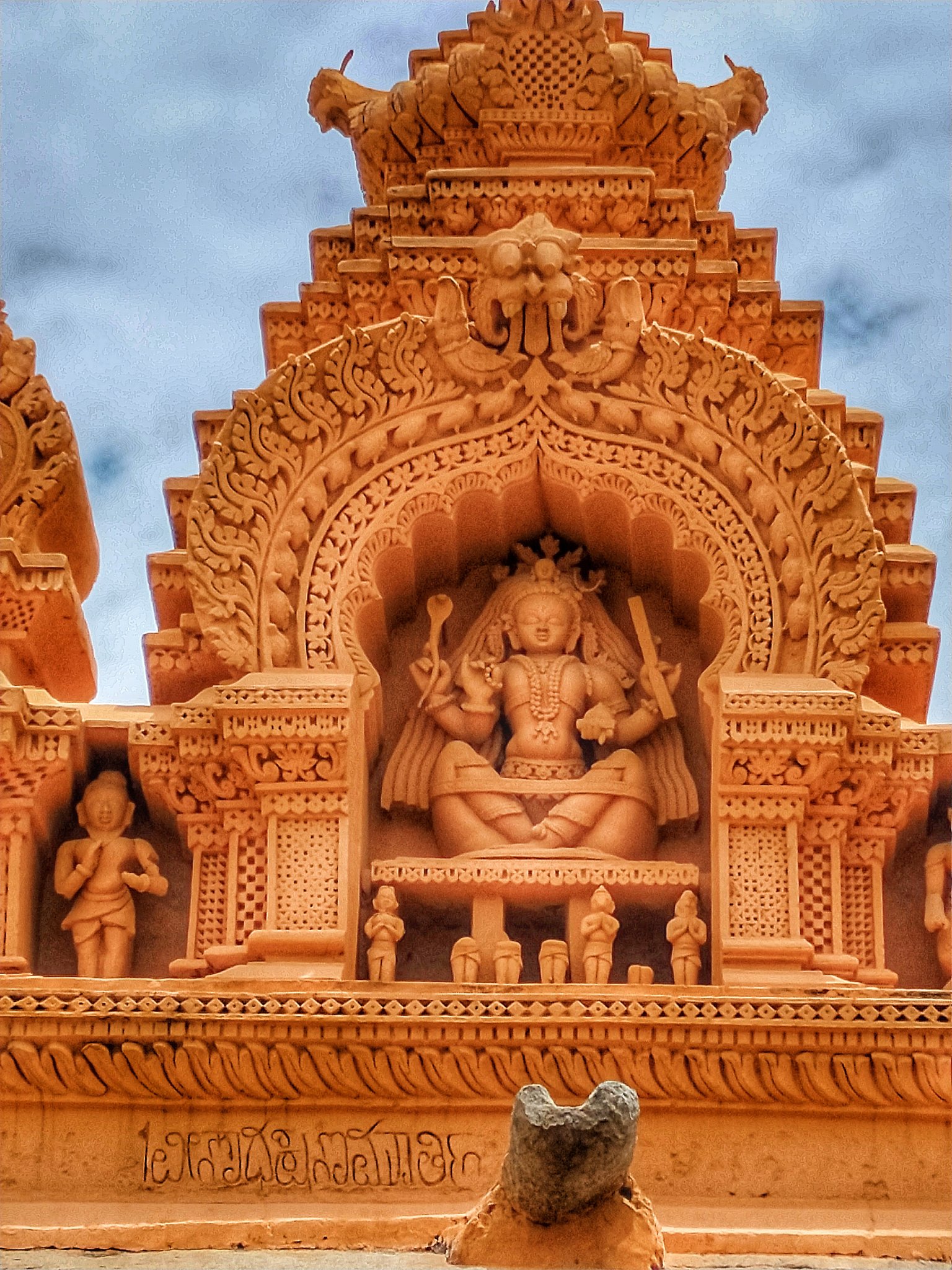 |
| Veena Dakshinamurthy |
This form of Lord Shiva represents his music teacher aspect. Here he is seen with 4 arms. In the front right hand he holds akshamaala, a naga (snake) in the rear right hand symbolizing tantric knowledge. Veena with left rear hand & palm leaf text with the front left.
2) Samba Dakshinamurthy
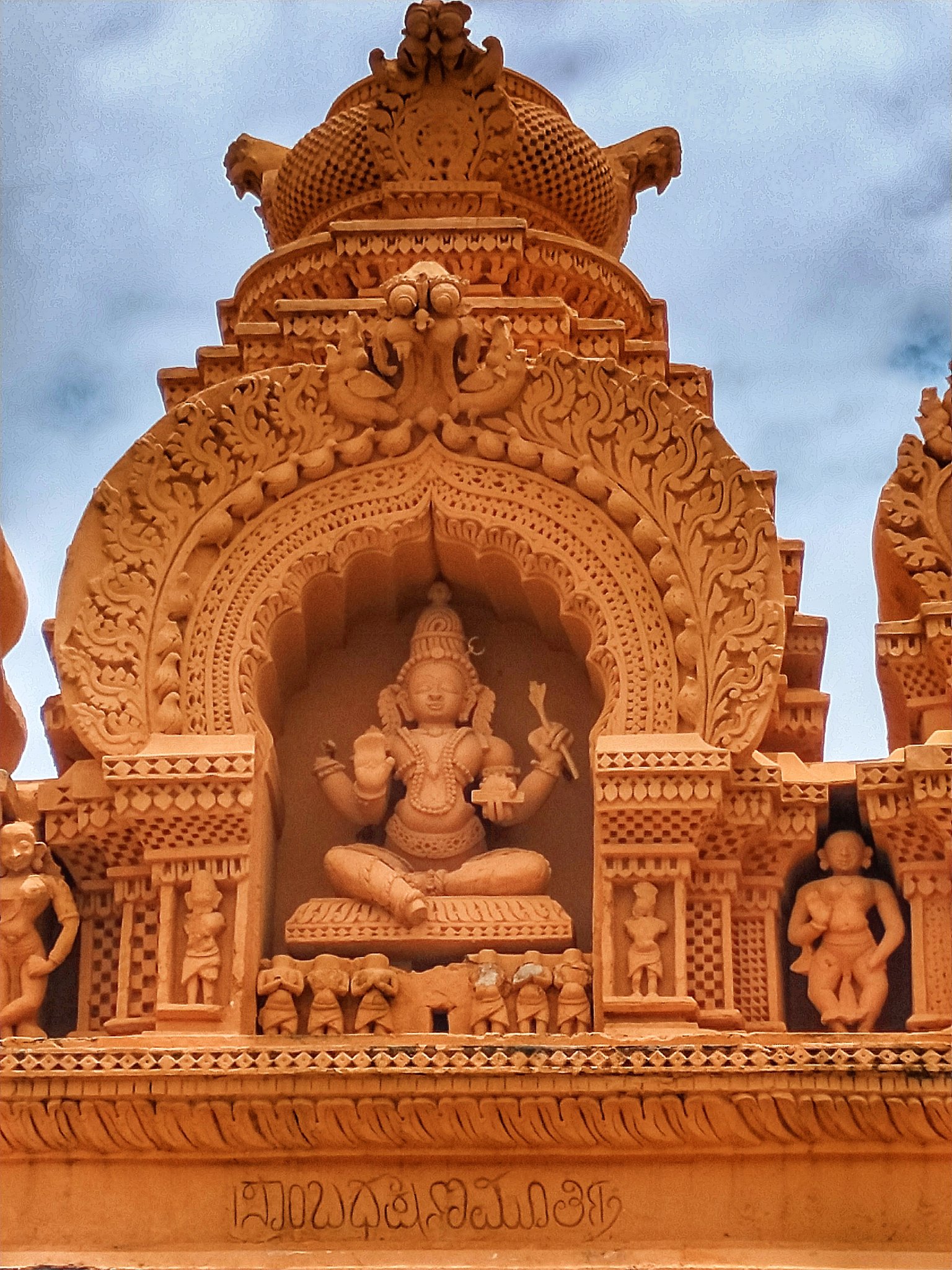 |
| Samba Dakshinamurthy |
Unfortunately the murthi's upper right arm is damaged. He holds an Abhaya mudra with front right hand & a text in the front left. He is initiating knowledge to his disciples.
3) Yoga Dakshinamurthy
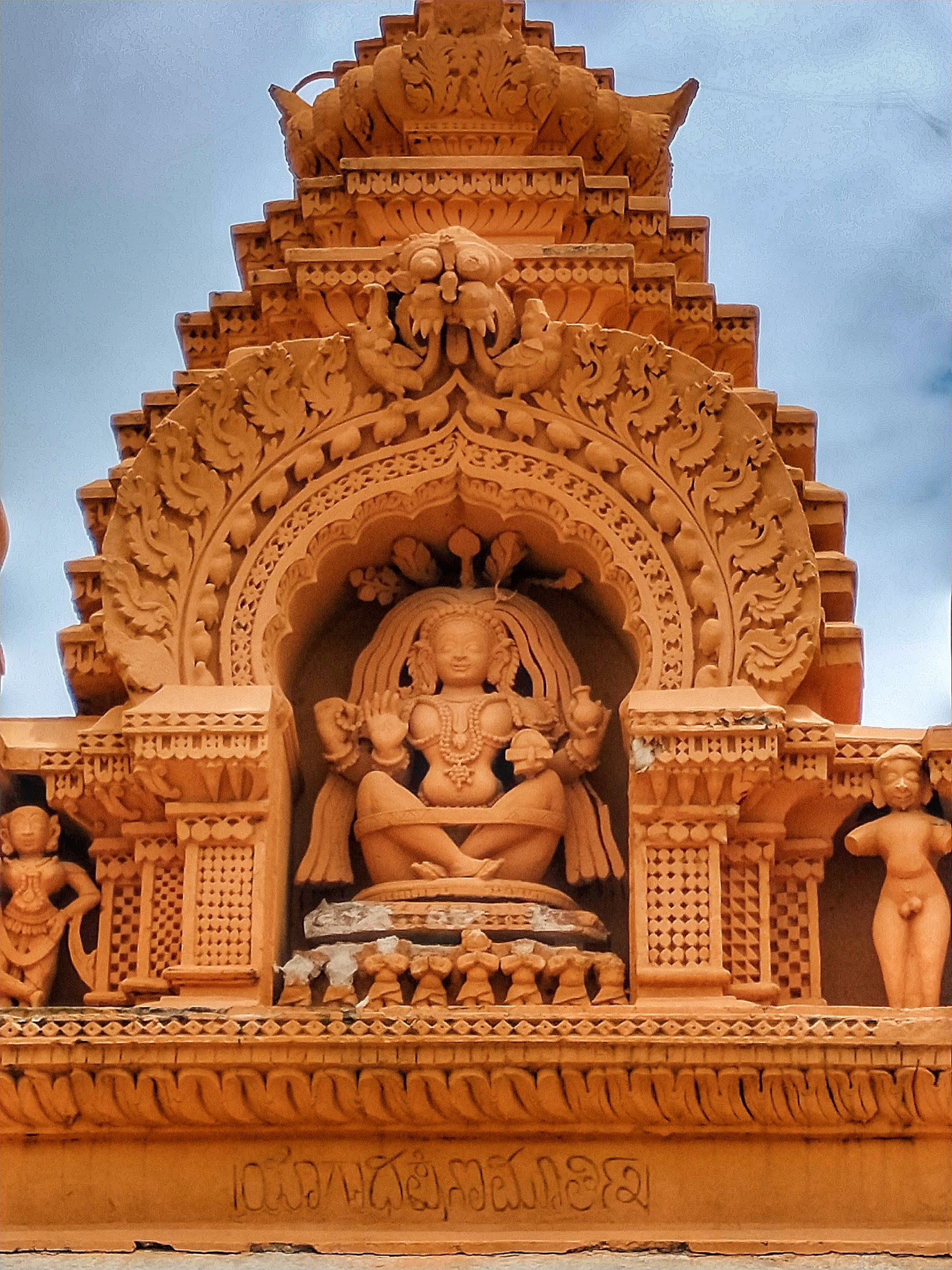 |
| Yoga Dakshinamurthy |
Here he is sitting in the Utkutikaasana here. His back arms hold an aksha maala & Kamandalam respectively. While the front are in Abhaya mudra & varda position. He also is holding sacred texts with the left hand indicating he is imparting knowledge.
4) Samhaara Dakshinamurthy
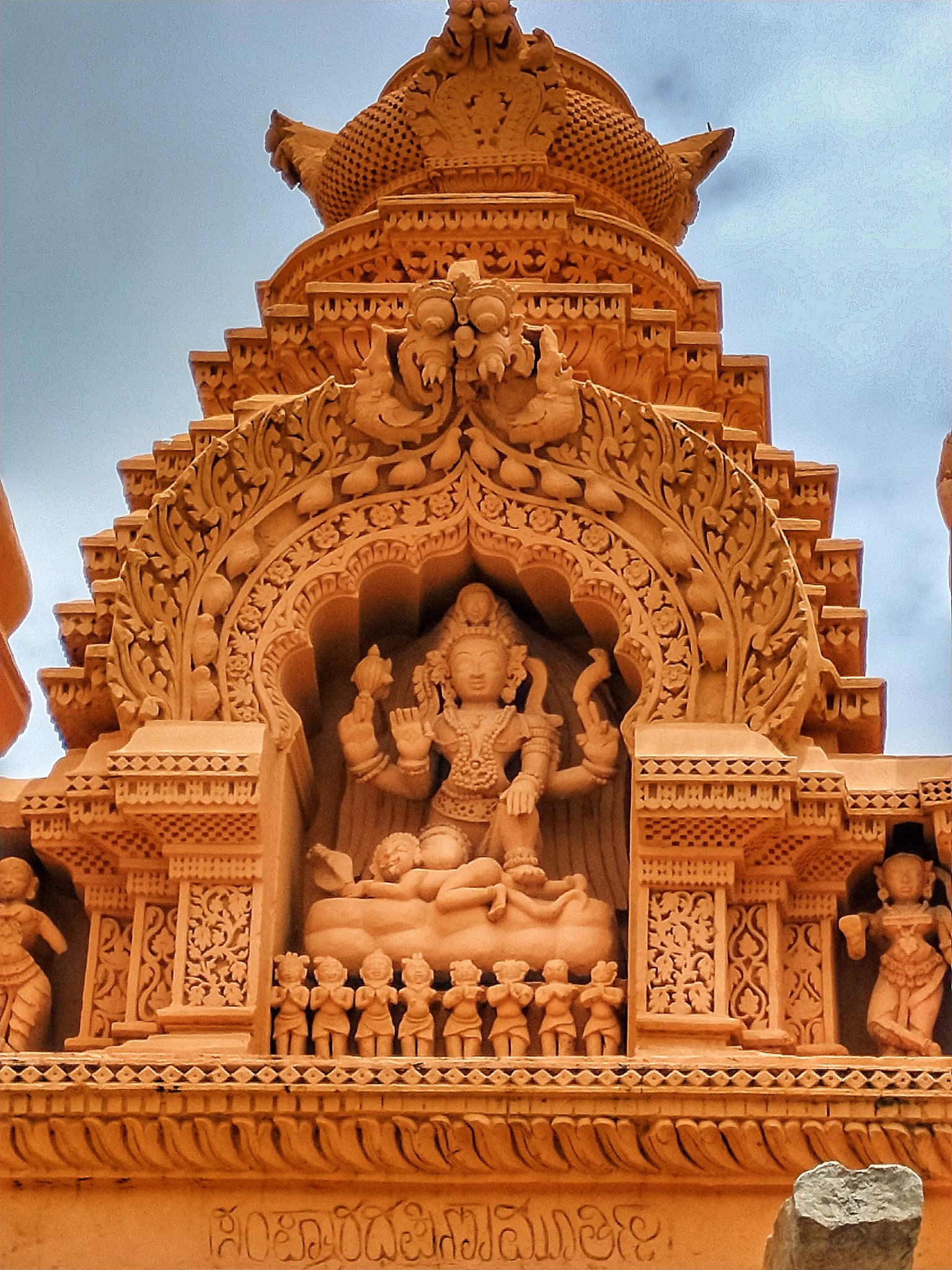 |
| Samhaara Dakshinamurthy |
Unlike other forms, here he is not seated. He holds Apasmara, who is the personification of ignorance down with his right knee & left leg. His right hand is in Abhaya position & left arm rests on his left knee. He also holds an antelope with left upper hand. Antelope is the personification of chanchalata i.e. restlessness & anxiety. Dakshinamurthy by holding & taming it is indicating to us that he his removing these feelings from our mind. Just like how he holds Apasmara (ignorance) at his feet.
5) Shakti Dakshinamurthy
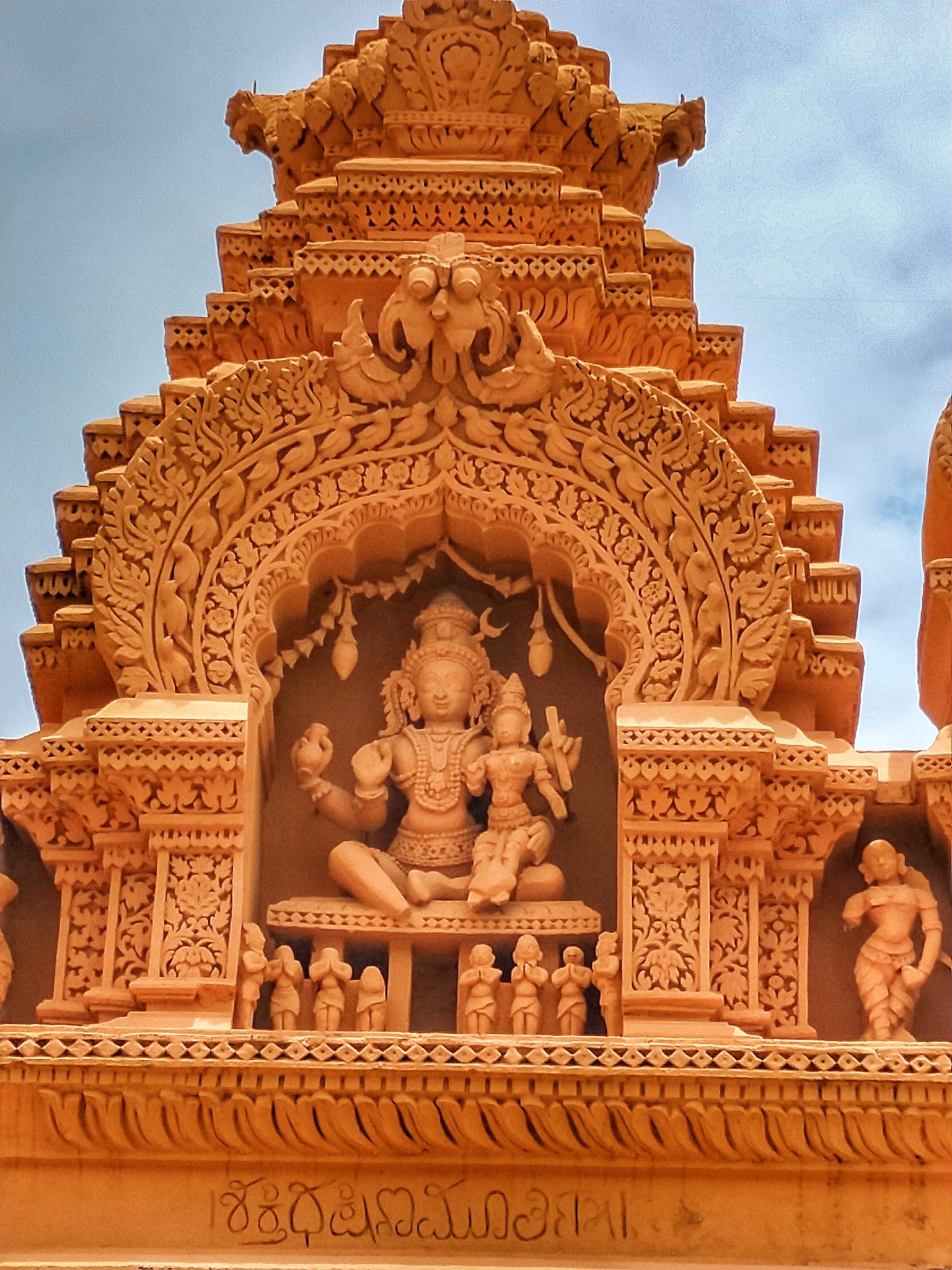 |
| Shakti Dakshinamurthy |
Depicts goddess Parvati seated on his lap. Rear right hand holds a Kamandalam, left hand holds a palm leaf manuscript of knowledge. Both him & Parvathi are holding Abhaya mudra with right arm, while his left arm rests on Parvathi's thigh.
6) Jnana Dakshinamurthy
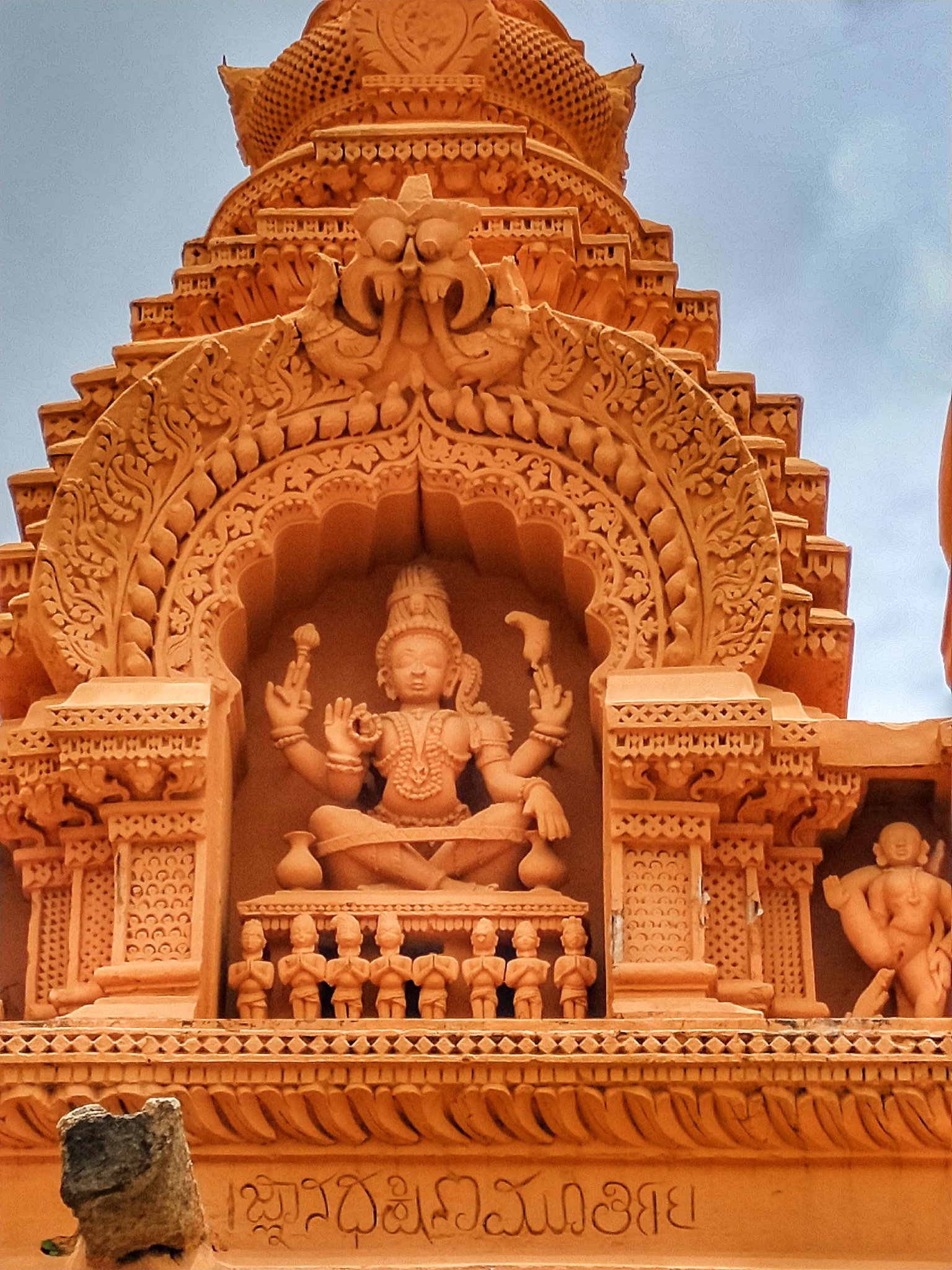 |
| Jnana Dakshinamurthy |
Jnana Dakshinamurthy is also referred to as Medha Dakshinamurthy. He holds an akshamaala with front right hand while his left rests on the knee. Here too he is sitting in Utkutikaasana posture.
7) Anusthana Dakshinamurthy
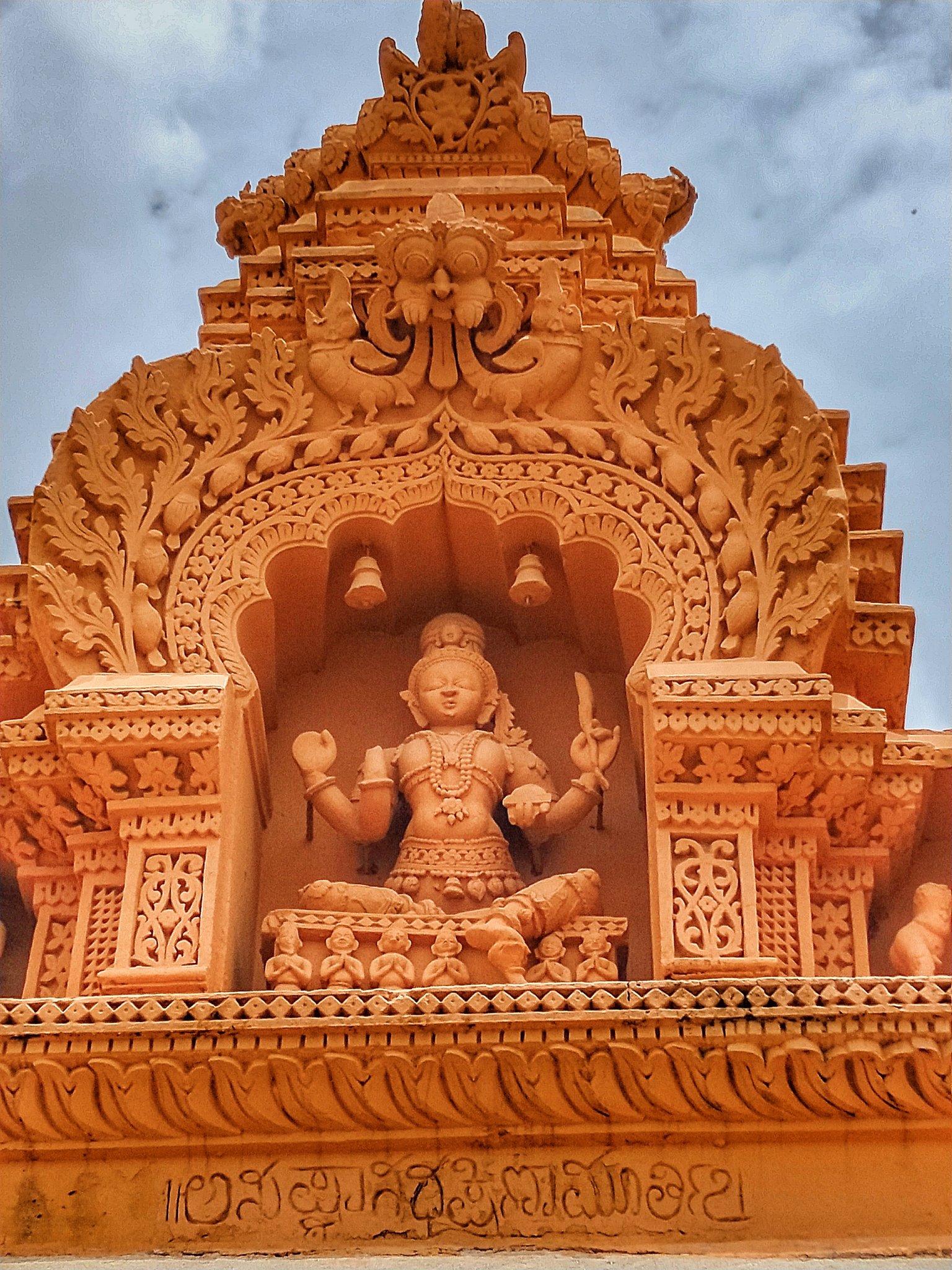 |
| Anushtana Dakshinamurthy |
This is also slight departure from the regular description of Dakshinamurthy. Here its the left foot that rests on the ground as opposed to the usual right leg. Its a very rare depiction only seen at a handful temples. It shows him in deep penance.
8) Vyakhyana Dakshinamurthy
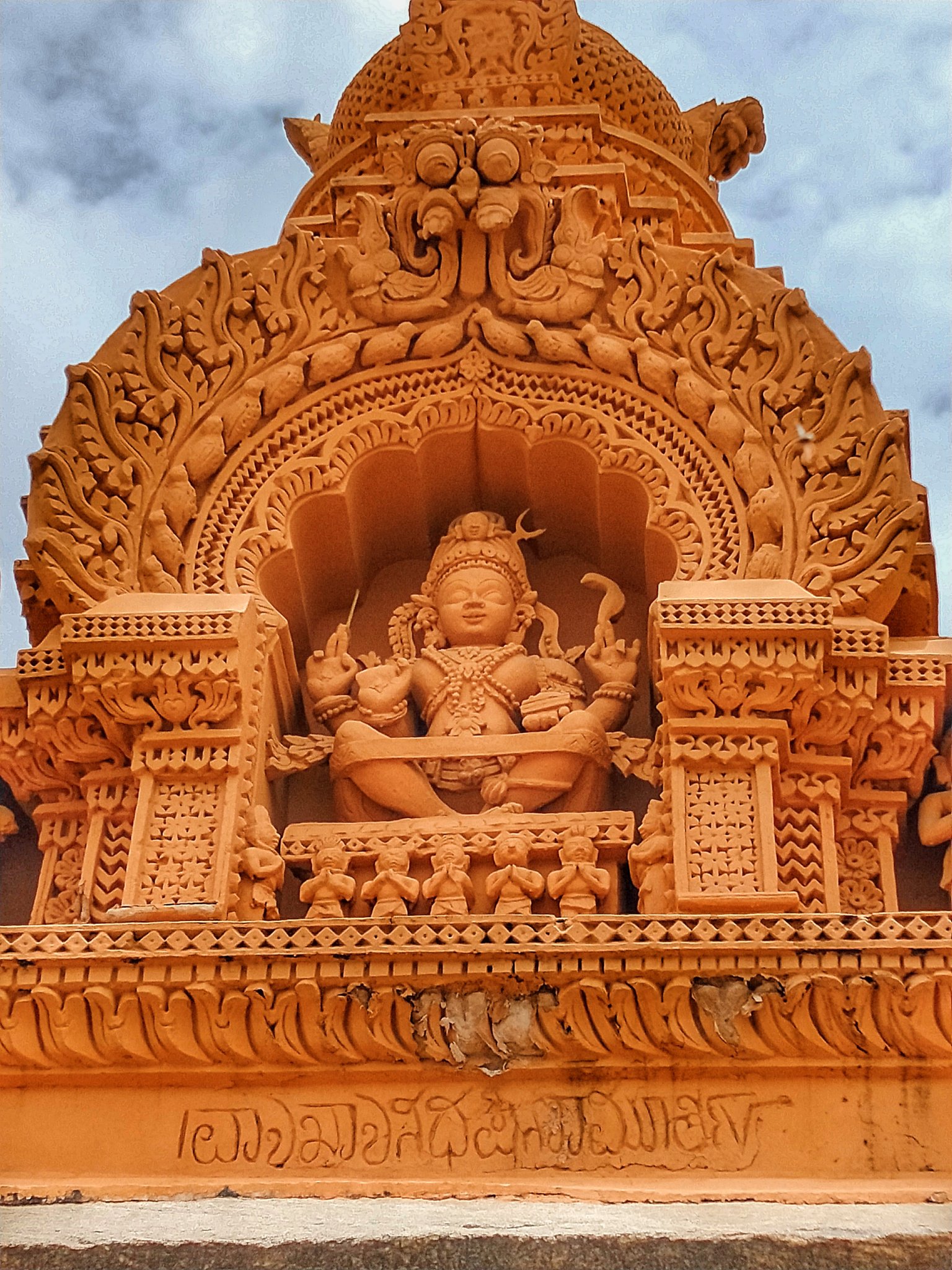 |
| Vyakhyana Dakshinamurthy |
Here he holds the Vyakhyanamudra, which represents the gesture of teaching. There are also one other forms of the same, which is one of the most common depictions of Dakshinamurthy. In most of the temples he is depicted as Vyakhyanamurthy.
9) Vidhya Dakshinamurthy
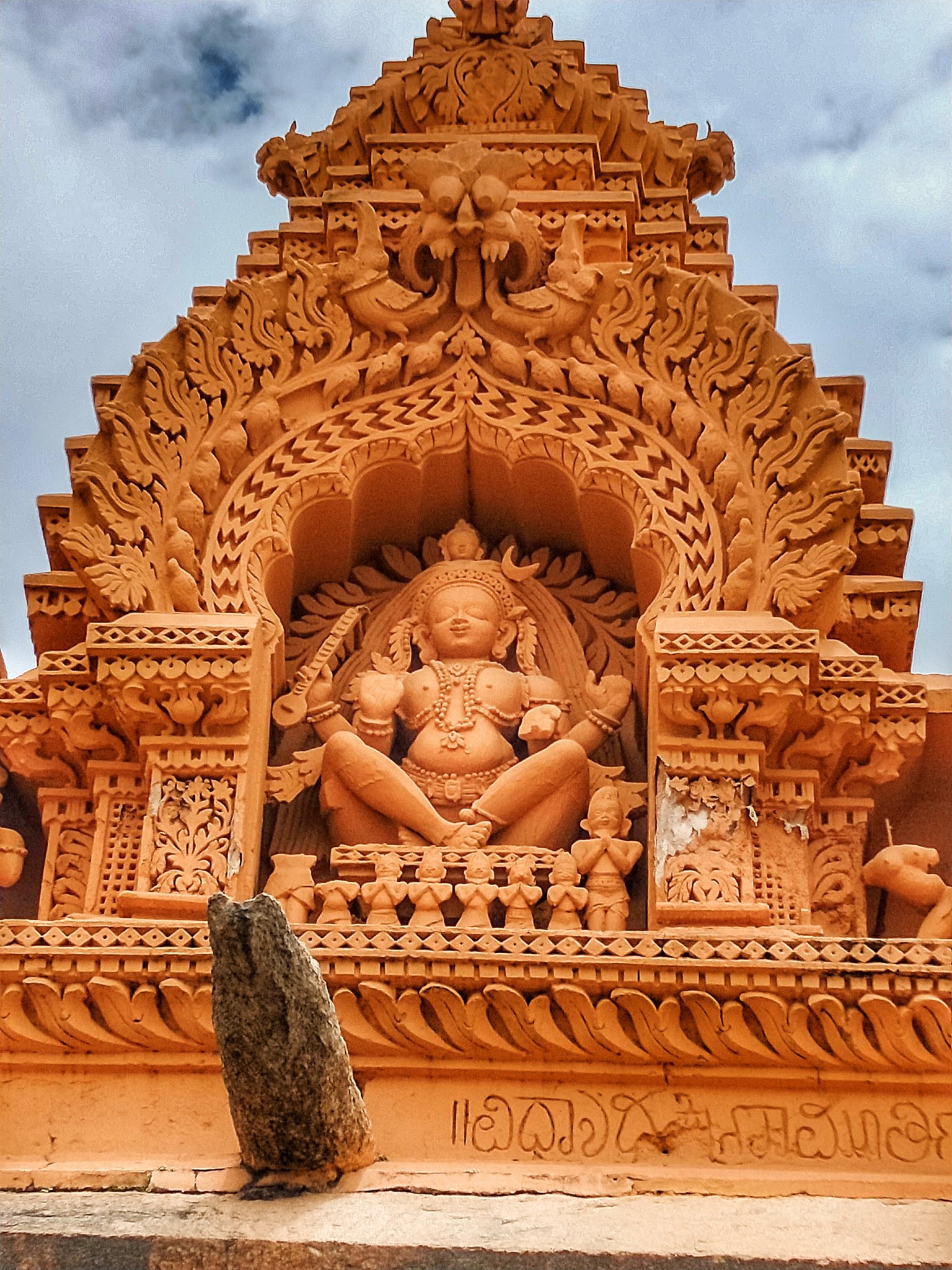 |
| Vidhya Dakshinamurthy |
Vidhya Dakshinamurthy. He holds a Veena with his upper right arm while the lower arms are in the Abhaya & Varada poses. His matted hair is thick & long. Also observe the Chandra (moon).
10) Vatamoola Dakshinamurthy
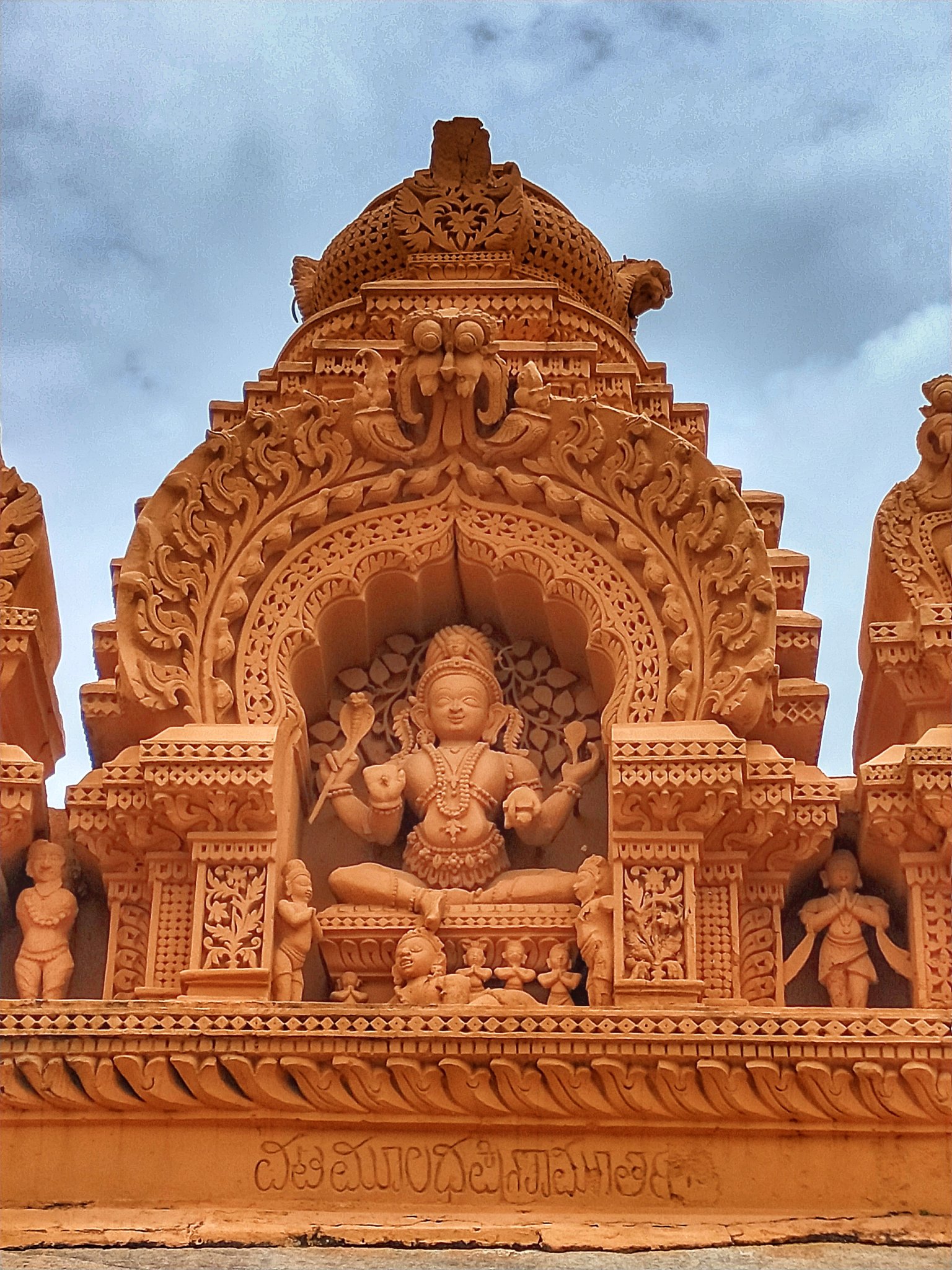 |
| Vatamoola Dakshinamurthy |
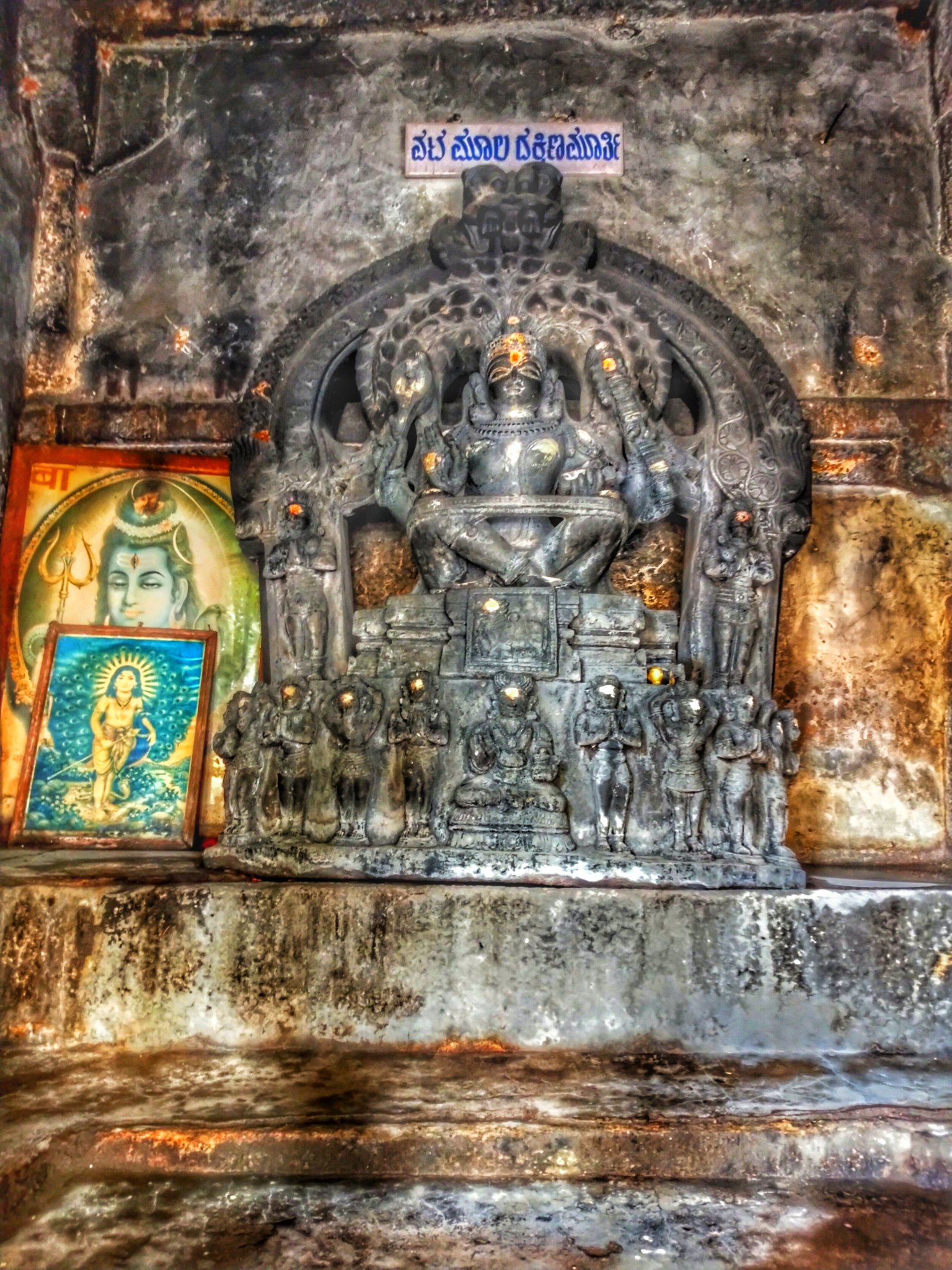 |
| Vatamoola Dakshinamurthy |
Here he is depicted as sitting beneath the Vata vruksha (Banyan tree). The tree represents the expanding universe, suggesting Dakshinamurthy presides over the cyclic process of sristhi (creation), sthiti (preservation) & samhara (absorption).
I've written another post detailing 25 forms of Lord Shiva known as Panchavimshatililamurti from the same temple that can be read
Here


















No comments:
Post a Comment